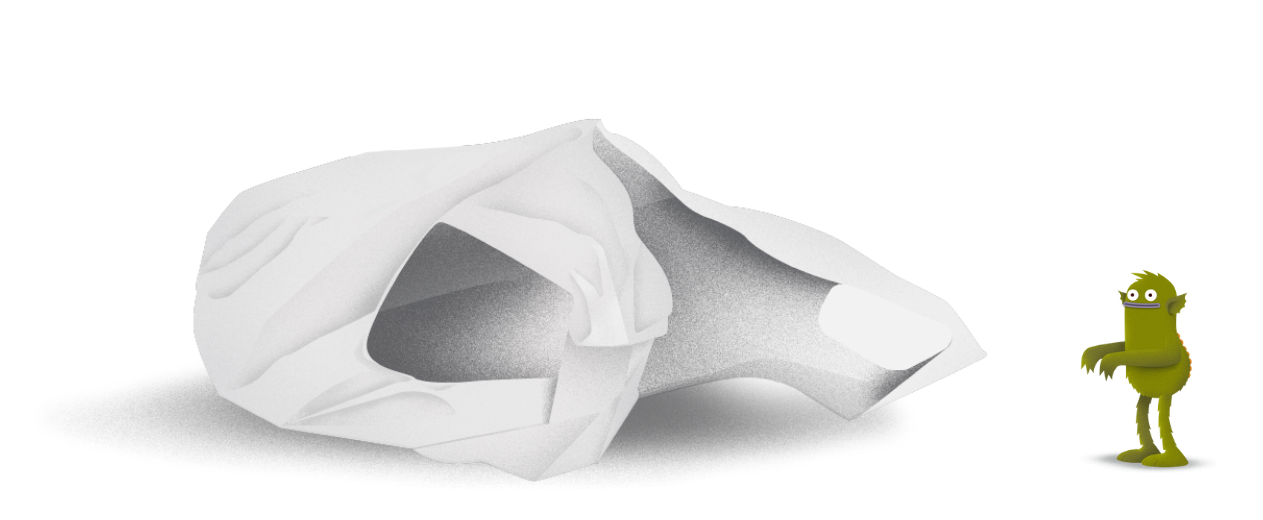Plastic bags are ruining recycling. Here’s why.

There’s an easy way for you to make recycling economically viable for your community, and it only takes a second of your time. Seriously, just one second. So, what is it, you ask?
Stop bagging your recyclables.
Unfortunately, most of us like to put our plastic bottles, metal cans, and paper items in a plastic bag before tossing them into the recycling bin. No matter how harmless those plastic bags might seem, they’re a big no-no.
What’s the damage?
Turns out your community’s material recovery facility (the place where your recyclables are processed) can’t handle plastic bags. They jam the processing equipment, which creates work stoppages. By work stoppages, we mean the whole recycling facility has to shut down. Just because of plastic bags.
Some facilities don’t even bother with the bags. When workers see them, they toss them in the garbage—even ones that contain perfectly good recyclables. Others schedule in time for employees to clear bags from the machinery. This can take up to an hour every single day. Sometimes longer. Plus, it can be dangerous, since facility staff have to scale the equipment and use sharp carpet knives to cut the bags free.
Now, imagine if you couldn’t do your job for an hour daily? You probably wouldn’t be all that productive, would you?
That’s exactly what’s happened to the recycling industry. Some cities are losing up to $1000 per day because of these stoppages. According to the City of Phoenix, plastic bags cost them $1 million in lost time every year. Recycling is becoming less productive and less profitable. So much so, that cities across the country are rethinking their recycling programs. And none of us want that.
Thankfully, the fix is easy. By keeping plastic bags out of your recycling bin, you can have a significant impact on the long-term sustainability of recycling. And wouldn’t that be swell.
Dealing with plastic bags
Now that you know plastic bags don’t belong in your recycling bin, you’re probably wondering what to do with them. You could toss them in the garbage, but keep in mind, they take a long time to photodegrade—up to 500 years, according to experts. Plus, they wreak havoc on wildlife.
If you’re not into creating more waste, here are some other things you can do with those pesky plastic bags:
- Reuse them. Instead of getting new ones, reuse the ones you already have.
- Recycle them. Yes, you can recycle plastic bags—just not in your recycling bin. Every year we use about half a trillion plastic bags. Only 1% of are recycled correctly. Plastic bags can be dropped off at most supermarkets and big box stores. Keep your eyes peeled for takeback bins. British Columbia residents can drop plastic bags and overwrap off at a Recycle BC depot. You can find your nearest depot here. Tacoma, Washington residents can do the same at the Recycle Center. Plastic bags are recycled into more plastic bags and composite lumber.
Whatever you decide, just remember not to bag your recyclables. That way, you can contribute to a more efficient, more profitable recycling program.
3 Comments
Comments are closed.
Jill Crane
February 11, 2022 at 11:50 amAre there any bags that can be used to hold recyclables.
April
February 11, 2022 at 1:00 pmExcellent question! So in the vast majority of locations, recycling facilities require items set out curbside to be loose in the bin. However, there are some locations that have curbside pick up service without bins, or allow large recycling bags when residents have overflow from their bin. It is best to check what your specific location allows in this respect. Otherwise, it is not good to put your recyclables into small bags then throw them into your bin- so if you’re using little grocery bags to collect them inside your home, please dump them into the bin un-bagged.
Pat N
July 2, 2022 at 2:21 pmBetter to just use the cloth bags for all the shopping that is done. Ask for the paper bags to be used, instead of the plastic ones. Or just don’t use any bags at all — perhaps you can provide a box or container for the store personnel to put your purchases into.